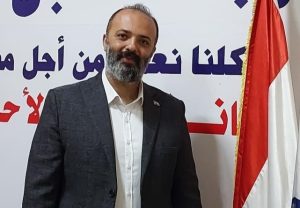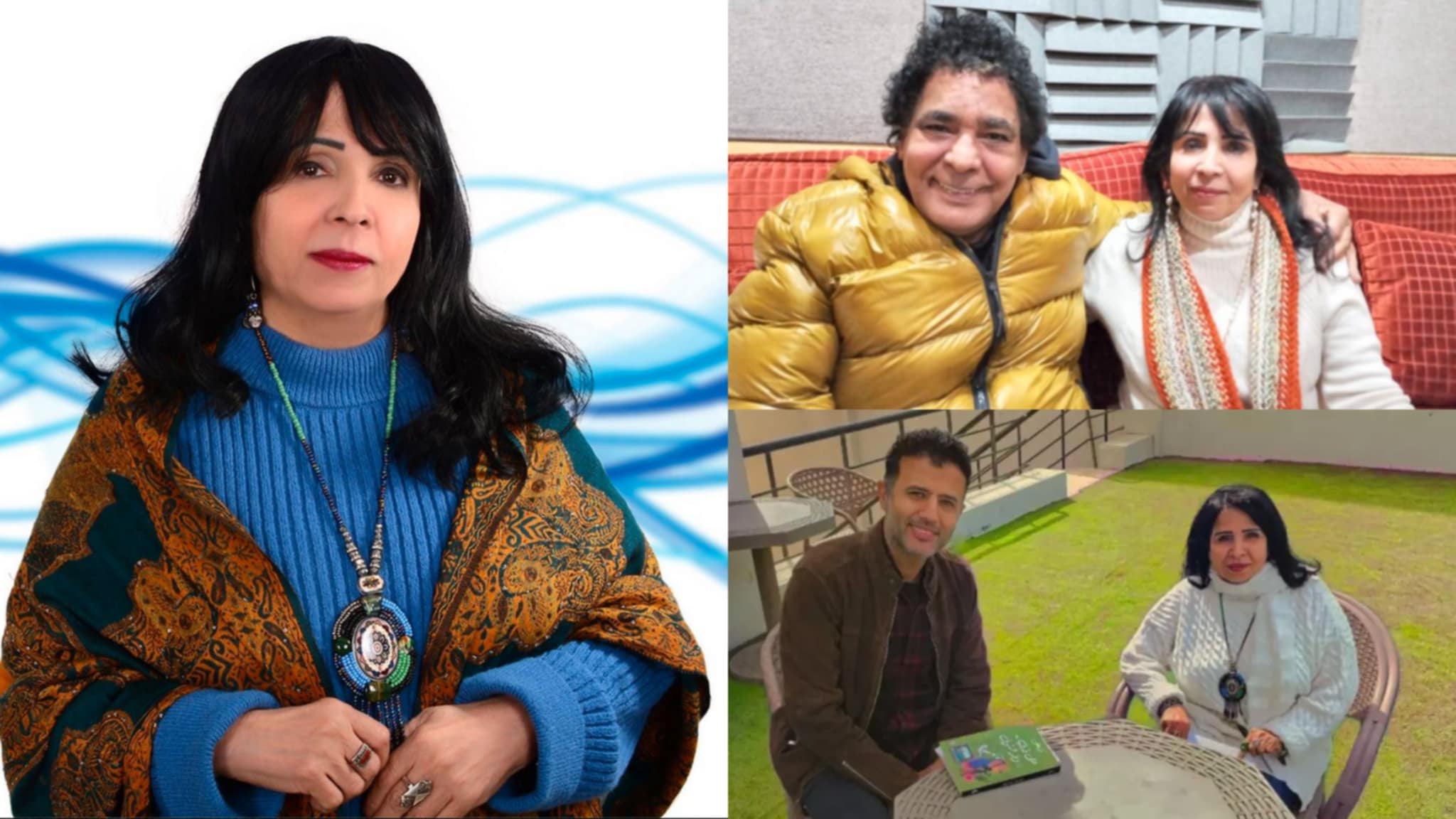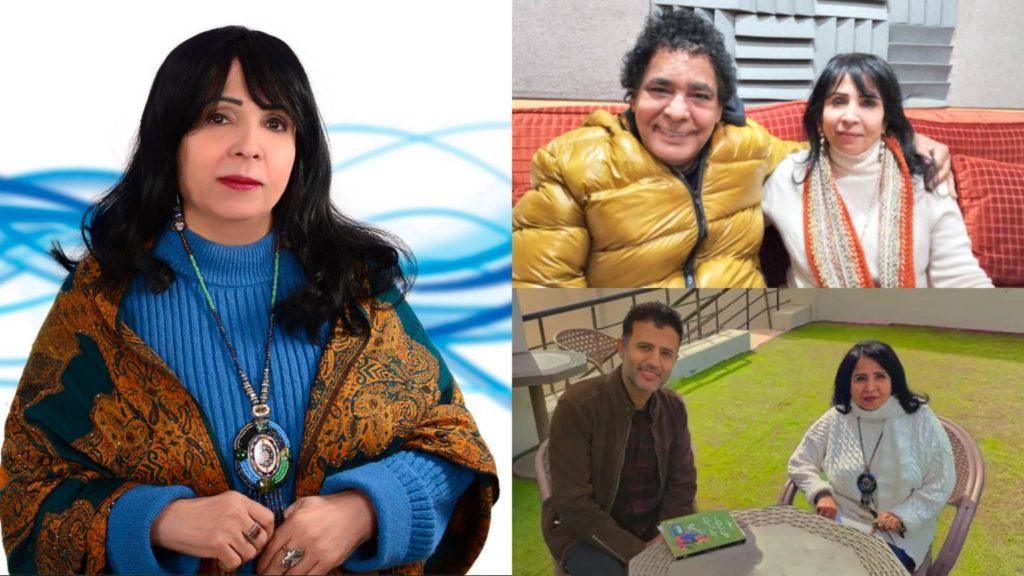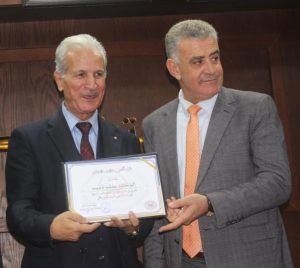“The silence of poets is a great prison… and their freedom is creativity,” said the prominent lyricist Kawthar Mostafa, expressing her happiness to return to the music scene through the song “Keda El Ayam” which concluded Hamza Namira’s new album. She emphasized that a true artist’s happiness is when their works leave the darkness of drawers to reach the audience, especially after her recent limited presence through some TV series soundtracks.
Kawthar Mostafa told Al-Shorouk newspaper that in the last five years, her production was limited to writing songs for various artistic works, including a martyr’s wedding song in the series “Al Ekhteyar 2”, the closing song of the film “Laylat Al Eid” with the late director Sameh Abdel Aziz, a children’s series soundtrack “Noura” produced by the National Council for Women, and a new quartet of the song “Madad” for Mohamed Mounir about Jerusalem which received wide reactions. However, this amount was not satisfying as she never stopped writing, and a poet always wishes their words to reach people. “The silence of poets is a big prison, sometimes deadly. A poet’s true freedom is to create and have their creativity reach people,” she added.
She revealed details of her cooperation with Hamza Namira: “I heard Namira was looking for me, so he came to visit me at the Elderly Artists Care Home. It was a wonderful meeting; I presented him with a collection of songs, and he chose several including ‘Keda El Ayam’ which he included in his new album.”
She continued: “I always wished to work with an artist who has a project and vision, like Mohamed Mounir with whom I had a long artistic journey and we presented a different musical experience. I found these qualities in Hamza who masters word selection and seeks his unique imprint. I have been following him since his debut and know he is a dedicated artist diligent in his work. He carefully selects words, as evidenced by the many wonderful poets he collaborated with in his new album.”
Regarding the noticeable change in her new song, which aligns greatly with the taste of the new generation, she said: “It is indeed a light song unlike what I used to present before, especially with Mounir’s songs where symbolism was significant and images were always complex like the song ‘Sheta’. But in this song, the symbolism and imagery are simpler. However, it should be noted that this song was not written specifically for Hamza but was in my drawers.”
She pointed out: “I believe if the cooperation between me and Hamza repeats, we will witness more beautiful works. I see him as an artist capable of creating a different future for Arabic music. Thank God the song came in line with the new generation’s taste, which is necessary and required. A poet should not be confined to a specific era but must strive to reach people despite changing times, aiming to elevate taste rather than merely satisfy it. I was very happy when I learned that the song achieved 100,000 views within hours of its release, meaning the audience seeks words, melody, and warm voice, all provided by Hamza Namira in his new album that combines authenticity and modernity simultaneously.”
About her evaluation of the summer season albums which witnessed strong competition among top singers, she said: “Unfortunately, we face a season of ‘quantity without quality except a little.’ I do not want to evaluate anyone or the lyrics, but I wished to find quality coupled with the large quantity currently happening and the noticeable revival in the music scene.”
When confronted with the general feeling of a disconnect between songs and the surrounding reality and events, she sighed deeply and said: “Unfortunately, singing is currently greatly disconnected from reality, but reality is very painful. No matter how imaginative the picture is, it will not reach the harshness we see on TV screens. Many times, I tore up my papers after writing songs that align with events because I felt the words would increase people’s worries and discomfort. But I see this as a time for awakening, which I have done by writing a group of songs aimed at awakening the audience and uniting Egyptians behind one word. This is my role as a creator; I must have a strong influential role. Our country needs this.
We need songs that awaken the citizen’s spirit and unite them as one in light of all the wars and conspiracies our beloved country faces. I hope these songs will see the light one day and find someone to perform them. I have no means; I write despite all my health pains, but my safe refuge remains the pen and paper and my legitimate dream to reach a better life.”
Finally, when asked about her reaction to the state’s celebration and recent honoring by Mrs. Entissar El-Sisi on International Women’s Day, she said: “Of course, I was happy. The honor was a victory for me and every Egyptian woman. Despite all the problems and crises Egypt is going through, there is insistence on celebrating women and their role in society. What made me very happy was the amount of joy and happiness I found in the eyes of everyone around me expressing their happiness for my honor, as if they were the ones honored. I feel overwhelming joy when I see people happy for my honor, my return to the music scene, or the release of my poetry collection, and the rush of friends and close ones to celebrate me.
Then I feel I have achieved something, and all I did before was not in vain, and that my artistic history is tangible, continuous, and lasting.”














Recommended for you
Talib Al-Rifai Chronicles Kuwaiti Art Heritage in "Doukhi.. Tasaseem Al-Saba"
Exhibition City Completes About 80% of Preparations for the Damascus International Fair Launch
Unified Admission Applications Start Tuesday with 640 Students to be Accepted in Medicine
Egypt Post: We Have Over 10 Million Customers in Savings Accounts and Offer Daily, Monthly, and Annual Returns
His Highness Sheikh Isa bin Salman bin Hamad Al Khalifa Receives the United States Ambassador to the Kingdom of Bahrain
Al-Jaghbeer: The Industrial Sector Leads Economic Growth